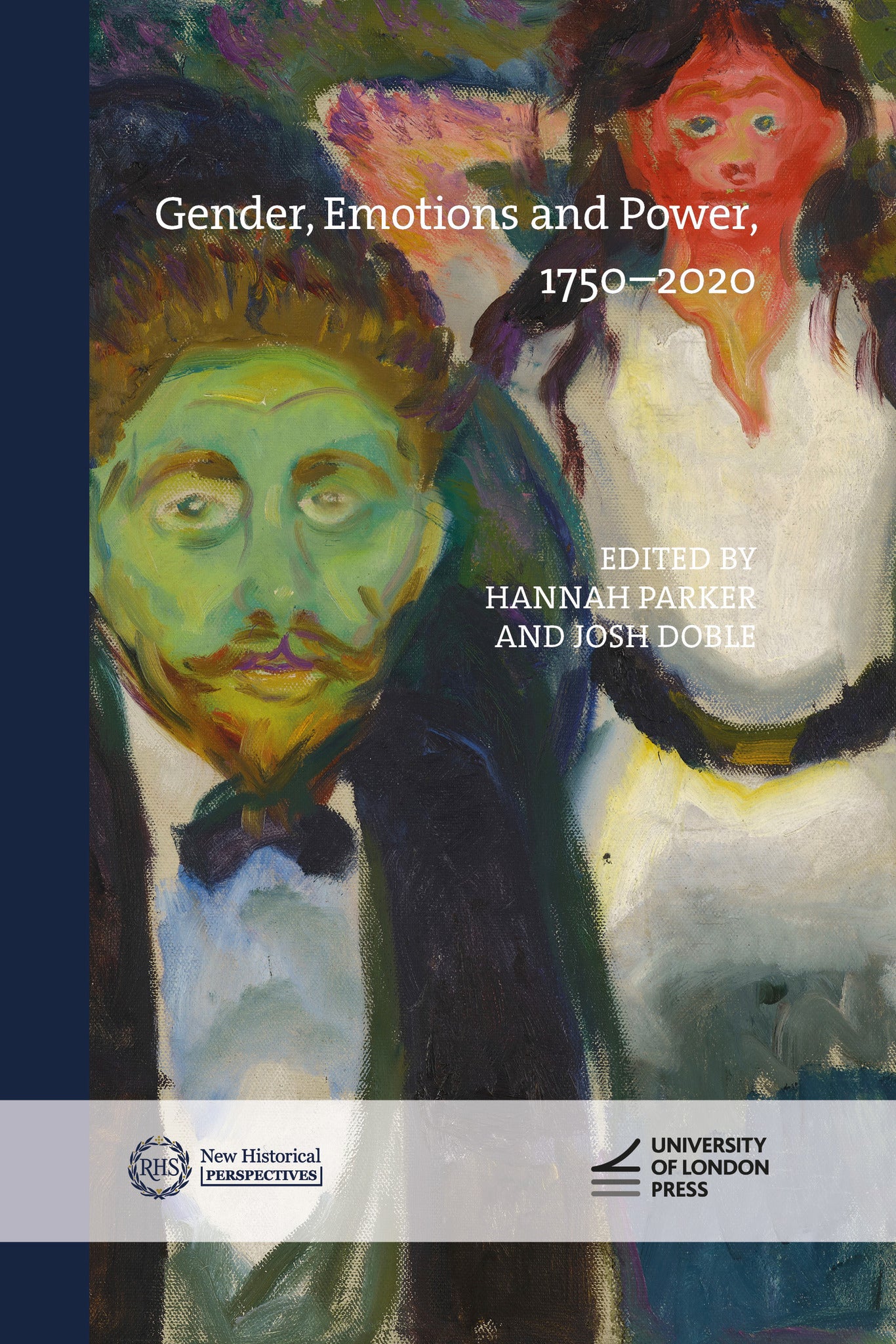We're sorry. An error has occurred
Please cancel or retry.
Gender, Emotions and Power, 1750–2020

Some error occured while loading the Quick View. Please close the Quick View and try reloading the page.
Couldn't load pickup availability
- Format:
-
30 November 2023

This collection of essays constitutes a timely intervention into contemporary debates on emotions, gender, race and power. Interrogating how emotional expectations are established as gendered, racialised and class-based notions, the volume explores the ways these expectations have been generated, stratified and maintained by institutions, societies, media and those with access to power.
The collection draws upon a diverse set of case studies to present a chronologically and geographically broad intervention. The authors identify and explore connections between the depiction of twentieth-century transnational feminists, settler colonies in southern Africa, post-unification Italy, Maoist China, the twentieth-century Soviet Union and the medicalized spaces of the British Raj. Contributions also move across time from notions of eighteenth-century British masculinity, through Victorian Britain and whiteness in settler colonialism, to the Liverpool docks of the 1990s and contemporary Russia. Collectively, the volume’s authors seek to understand how the normalisation of emotions as a range of gendered qualities forms the basis upon which notions of self, and connectedly, social identities are performed. As such, this is an important contribution to the history of emotions that addresses how gender and emotions are formed as co-constituents within dominant power structures, in different geographic and temporal spaces.

HISTORY / Social History, Social and cultural history, SOCIAL SCIENCE / Gender Studies, Gender studies, gender groups

'The intersections of gender and emotion are critical to the operation of power. Drawing on global examples, this original collection offers one of the first explorations of their intersections for the modern period. Diverse case studies deepen our understanding of emotions as critical to political movements, agency and identities.'
— Katie Barclay, Professor and Head of Historical and Classical Studies, University of Adelaide, Australia
- Introduction
Hannah Parker and Josh Doble - Part I Gender, class and sexuality in the negotiation of political power
- 1 “My old eyes weep but I am proud of my own children”: Grief and revolutionary motherhood in the Soviet 1920s
Hannah Parker - 2 Emotion as a tool of Russian bisexual and transgender women’s online activism: a case study
Olga Andreevskhikh - 3 Sounding the Socialist Heroine: Gender, Revolutionary Lyricism and Korean War Films
Yucong Hao - 4 Emotions at Work: Solidarity in the Liverpool Dock Dispute, 1995–98
Emma Copestake - Part II Power and Place-making: Class, hygiene and race in the British Empire
- 5 White Pride, Male Anger and the Shame of Poverty: Gendered emotions and the construction of white working class identity in interwar Southern Rhodesia
Nicola Ginsburgh - 6 “Africans smell different”: disgust, fear and the gendering of interracial intimacy in Kenya and Zambia
Josh Doble - 7 Gender, Mission, Emotion: Building hospitals for women in North-western British India’ India
Sara Honarmand Ebrahimi - Part III Modern Europe’s Public Sphere and the Policing of the Gendered Body
- 8 “The sap that runs in it is the same”: How the ideal of romantic love challenged the myth of ‘primitive’ polygamy in Paolo Mantegazza’s sexual science
Francesca Campani - 9 Writing the Man of Politeness: the hidden importance of shame in eighteenth-century masculinity
Michael Rowland - 10 “At nature’s mighty feast there is no vacant cover for him”: Suicide, masculine shame and the language of burden in nineteenth-century Britain
Lyndsay Galpin - 11 “Sadistic, grinning rifle-women”: Gender, emotions and politics in representations of militant leftist women
Hannah Proctor



